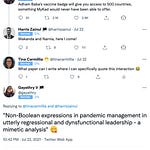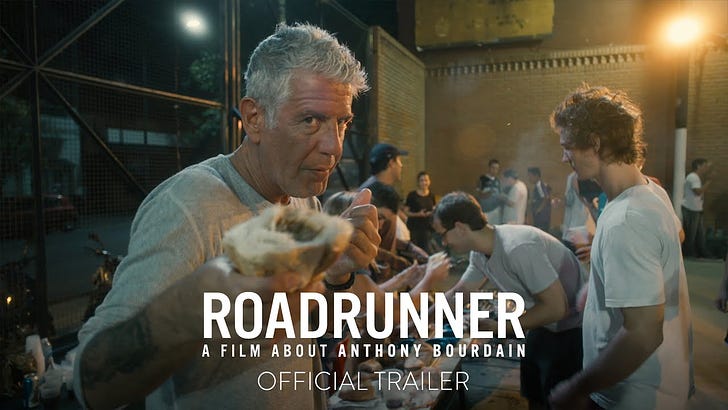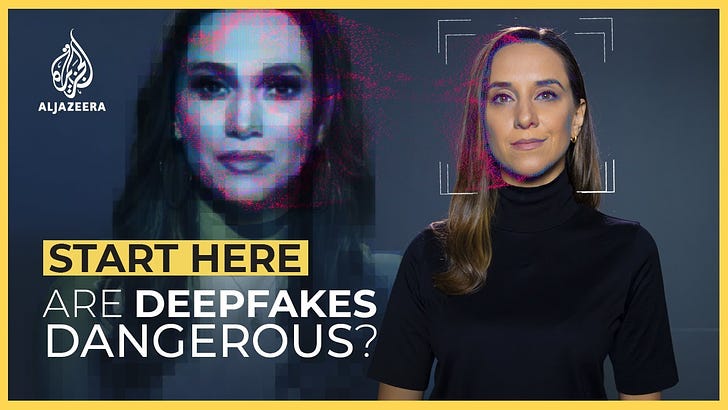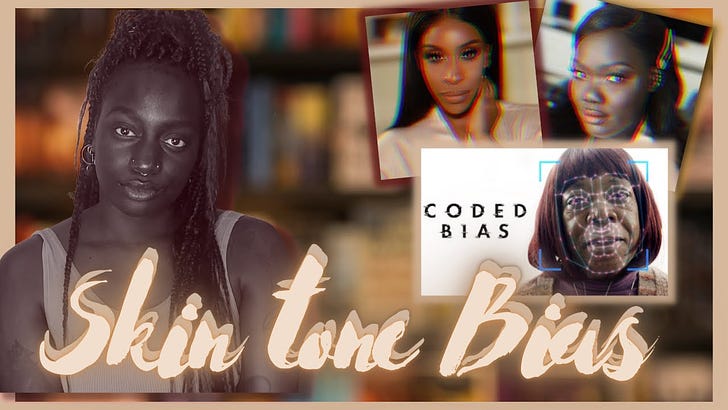Trump v Twitter v Tout Le Monde
Twitter fact-checks Donald Trump. No more than a day later, he signs an executive order targeting Big Tech. But Techdirt says: (1) it’s a distraction (2) it’s legally meaningless. Trump also ends US relations with the WHO.
On Wired, Chris Stokel-Walker summarises how OSINT tools catch Dominic Cummings with his pants down – again, and again. “The story reveals how the verification of narratives – previously the preserve of journalists and investigators – can now be done by anyone with a computer, time, and some lateral thinking skills,” says Swansea University’s Yvonne McDermott Rees.
From MIT Technology Review: Yes, older people are more likely to share misinformation – but if you think you know why, you could be wrong. Also, fact-checks aren’t necessarily the solution.
COVID-19 is an “experimental subject like no other” for people who study health and science disinformation, write Philip Ball and Amy Maxmen on Nature.
On advocacy
UPDATE: WAYS TO HELP
This week issue feels heavier for me to write. The news cycle has been quite hard on my mental health, and if I’m being quite honest, it has triggered some flashbacks to a tweet I posted not too long ago that led to violent threats all over my social media. (WARNING: Don’t. Read. The. Comments.)
However, I am reminded of Ijeoma Oluo’s tweet on the beauty of anti-racism:


And Sanjeev Sanyal on the importance of reversing the gaze:
Based on those two posts, I dug out a journal entry I did not intend for publication, but which I read out in parts to my friend Belle when she visited me earlier in the week, to repurpose for this segment. I wrote this with environmentalism in mind when disheartened by the vile attacks on Greta Thunberg. However, you may replace any reference to that with anything worth advocating for, such as anti-racism.
When we demand perfection from advocates, it is defeatist and it disarms the advocacy. If you cave to the distraction, then the conversation shifts from the subject of the advocacy to the imperfection of the advocate.
It tells you that you cannot advocate, for instance, for the environment until you live off the grid, do not use fossil fuel, and be vegan. If we wait for that, we will never advocate for anything because it is unrealistic.
No one is completely free from the effects of the fossil fuel industry and Big Agro. The very moment you were born into this world, you have received their benefits. By this demand (for a perfect way of life in line with your advocacy), no one ought to advocate for the environment. By this same logic, no one ought to stand up against bigotry, violence, colonialism and other forms of injustice.
Your advocacy does not exist in a vacuum – removed from the realities of the world. It means that while you make conscious decisions to live up to the ideals of the future that you advocate for, there are times where you will have to participate in the immediate realities that are not of your choice. Advocacy is a process and it co-exists with the very present that it demands to improve.
Advocates who become public figures are under heavier critical observation. As the name, face and voice of the cause, they are benchmarked against a different set of standards – the kind that demerits anything short of perfection. Don’t be fooled, such scrutiny trickles down to the common person to dissuade you from even trying.
We must be discerning consumers of information. Some forms of advocacy certainly are performative but we should not be discouraged by the kinks within the movement. Like the making of a bowl of steamed rice, they will be sieved out in the process of dehulling or sifting or rinsing. Meanwhile, we must remain steadfast in our advocacy and not be discouraged by attempts to delegitimise us simply because we are realistic and present, but also cautiously optimistic about a better future.
We mustn’t wait for the person with a way of life that is perfectly in line with their advocacy. This person doesn’t exist yet, which is why we advocate for the future where such a person can.
What I read, watch and listen to…
I’m reading Michelle Kim’s essay, Allyship actions for Asians to show up for the Black community right now.
I’m watching:
I’m listening to:
“The Blizzard to us is the image that represents everything that we despise. It represents the things that we fear, our anxieties and the everyday routine. Everyone has its own blizzard, it can be a sickness, it can be the fact of losing someone, it can be all sorts of things. It’s something very personal, but something that you fight off to keep marching. – Fauve, 2013.”
Chart of the week
The Internet, at least this week, should just be for cat videos, cat gifs, cat photos and certainly, cat charts.
Krisis identiti dalam dunia asing
Saya mengemaskini catatan pendek saya tentang sebuah audio siar yang dirakam pada tahun 2018 bersama rakan sekerja saya pada masa itu, Haniff Baharuddin.
Ini adalah satu-satunya siaran di mana saya merujuk kepada asal-usul saya. Rakan-rakan sekerja saya semua tahu, saya mempunyai “Hukum 4S,” iaitu empat perkara tentang diri saya yang saya tidak mahu bincangkan dalam mana-mana siaran dan salah satu ‘S’ itu ialah ‘state’ (negeri asal).
Tetapi dalam rakaman ini, tentu sekali sukar berbincang tentang pembentukan identiti dan perubahannya melalui pengaruh pengalaman dan persekitaran. Saya teringat kembali tentang rakaman ini, dan anggaplah ia sebagai sambungan dari terbitan surat berita yang lepas.
Saya bersama Haniff meneroka perubahan identiti setelah memasuki dunia asing. Secara amnya dunia asing saya adalah kerjaya saya yang jauh lebih elitis dari saya. Jangan terpedaya – bidang media itu elit dan pasti menjadi lebih elit; industri media tidak pernah dan tidak akan memperjuangkan isu-isu rakyat biasa, hanya yang penting-penting sahaja.
Kami bukanlah seperti kera mendapat bunga – bukan hendak menjahanamkan peluang yang telah kami terima, tapi situasi kami memberi perspektif baru tentang diri kami sendiri yang masih mencari-cari tempat kami di dunia orang lain.
Identiti semakin dipolitikkan, dan saya, yang darahnya tercemar hasil kahwin campur, yang peparunya tercemar hasil bernafas udara bandaraya, yang langkahnya lain hasil berhijrah ke industri yang elitis, yang kosa katanya lain hasil pendidikan lanjut, masih mencari-cari tempat saya di dalam situasi baharu walaupun situasi ini sudah lama wujud. Begitulah.
“Kau, kau; aku, aku,” dan saya, di tengah-tengah masih terpinga-pinga.


















